Whether you’re a DIYer or a seasoned Pro, the landscape is changing when it comes to reciprocating saw blades (often called by the trademarked name, SawZall blades). Diablo made some pretty cool advances, but that often leaves many questions on which of their blades to purchase. Choosing the best Diablo reciprocating saw blades can help you and your crew get the best speed, performance, and life out of these accessories.
So it’s just a question of whether you intend to cut wood or metal, right?
Oh, my friend, there’s so much more to the conversation these days. So buckle up and let’s take a look at the best Diablo reciprocating saw blade for cutting wood, metal, and mixed demo work.
Diablo Bi-Metal vs Carbide
Diablo Bi-metal reciprocating saw blades are less expensive than their carbide cousins but they don’t last nearly as long. When you’re considering bi-metal vs carbide, it’s more than just the price tag. Carbide blades typically last dozens of times longer than bi-metal, so the cost per cut is actually much cheaper with the carbide Sawzall blade.
When it comes to cutting speed, an aggressive bi-metal blade is hard to beat in clean wood. However, it’ll round off quickly if you come across any nails. Since Diablo now has such a comprehensive line of carbide-tipped blades, carbide ends up being the best reciprocating saw blade for nearly every job for Pros. If you’re a DIYer with just a little cutting to do, bi-metal can still be an effective choice. Just keep in mind that if you’re making more than a few cuts with metal involved, you’re almost always better off buying a carbide blade.
Best Diablo Reciprocating Saw Blade for Clean Wood Cutting
Diablo Carbide-tipped Pruning and Clean Wood Blade
Cutting in wood is easier than metal. You can go with a really aggressive tooth count so the high stroke rate of a reciprocating saw can rip through it. For the most part, the lower the tooth count the better for speed. For this, we love the Diablo Carbide-tipped Pruning and Clean Wood Blade.
For clean cutting in wood, you can go with the most aggressive tooth count—as low as 3 TPI (teeth per inch). An aggressive tooth geometry comes along with it and chews through wood quicker than any other blade.
In addition to helping with the lighter part of demo work, it’s also a beast when it comes to trimming up or pruning shrubs and trees. You can leave the chainsaw in the shed for a lot of the work that’s too tough for your hedge trimmer. Need to cut through dirty roots? This is your blade.
Best Diablo Reciprocating Saw Blade for Nail-Embedded Wood
Diablo Demo Demon Reciprocating Saw Blade
For most demo applications, the wood blade you turn to is a nail-embedded model. The tooth count increases more toward the 6 – 8 range with the goal being to keep nails from entering the gullet and ripping teeth off. Blades like the Diablo Demo Demon recip saw blade use a variable TPI configuration to get the best performance and life.
Best Diablo Recip Blade for Thin Metal Cutting
Diablo Steel Demon Carbide Thin Metal Recip Blade
Metal cutting differs greatly from wood cutting. You need higher tooth counts to cut through the metal without ripping teeth off. The variable tooth design that gives you an advantage in wood works against you in metal. There, a symmetrical configuration works better. Bi-metal blades don’t usually last long and you can forget about making much more than a scratch in stainless steel.
Once again, carbide is king for cutting performance and durability by a long shot. For this reason, we recommend the Diablo Steel Demon carbide thin metal recip blade.
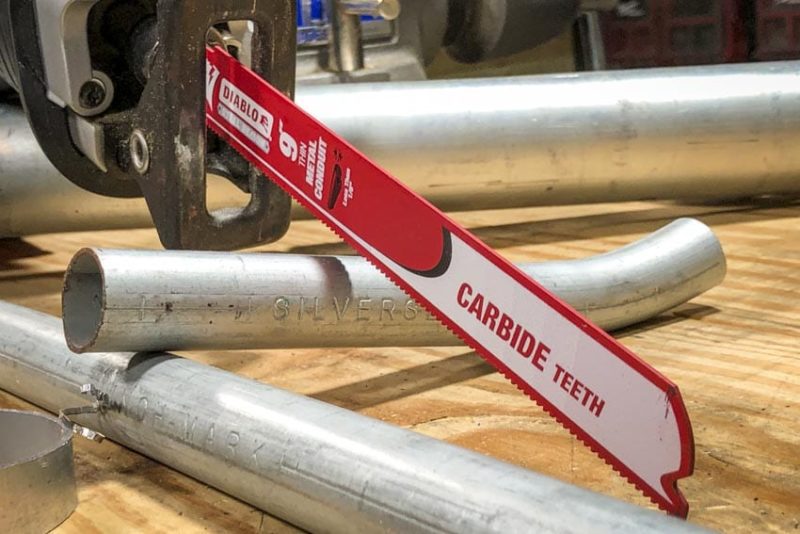
For thin metal less than 3/16″ or 1/8″ like EMT, you normally go with bi-metal blades. It’s the domain of electricians and plumbers for the most part. The high tooth count of thin metal blades (usually around 20 TPI) gives you a cleaner cut to work with. This TPI level used to be a bi-metal only application since you can’t attach carbide teeth at that level. However, Diablo just released a thin metal reciprocating saw blade that uses a carbide strip that the teeth are ground into.
Best Diablo Reciprocating Saw Blade for Medium Metal
Diablo Steel Demon Carbide Medium Metal Recip Blade
Medium thickness (1/16″ – 1/8″) metal is that middle ground where a lot of demo work takes place along with some plumbing. The best reciprocating saw blades for medium metal cutting are around the 10 TPI range. Definitely go with carbide if you’re making more than a couple of cuts. The Diablo Steel Demon Carbide Medium Metal reciprocating saw blade definitely fits the bill.
Best Diablo Reciprocating Saw Blade for Thick Metal Cutting
Diablo Steel Demon Amped Carbide Thick Metal Recip Blade
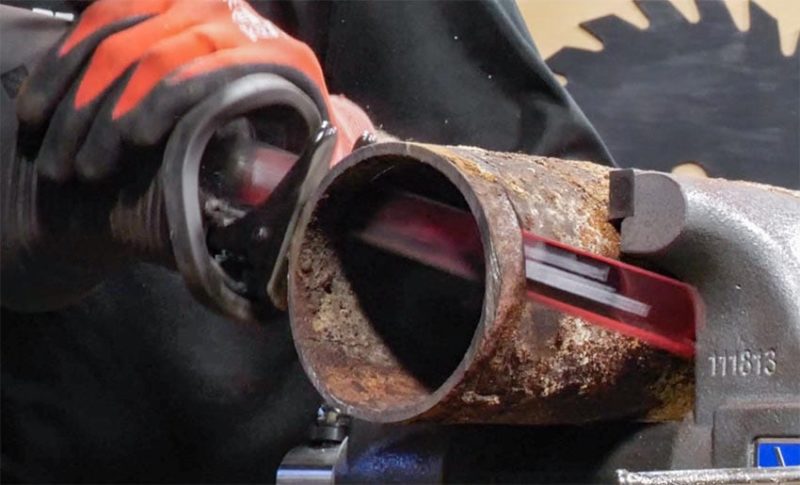
Previously, we recommended the Diablo Steel Demon Thick Metal blade. Now, however, we love the performance and durability of the stout Diablo Steel Demon Amped Carbide Thick Metal reciprocating saw blade. While not cheap, it offers incredible life and cutting speed through stainless steel and cast iron pipe.
Before this, thick metals like cast iron often require a torch to cut effectively. Then came diamond blades—but they take forever and cost a fortune. Dedicated thick metal Sawzall blades let you use your reciprocating saw instead. The tooth count here drops to the 8 TPI range – right in the wheelhouse of carbide wood blades.
Although the TPI is similar, the tooth geometry is set differently to work through thicker metals. Since the carbide is harder than what you’re cutting through, it’s able to cut much faster than most of your other options. Don’t even think about going with bi-metal for these applications greater than 1/8″ thick. At best, it’ll take a long time or multiple blades to get through it. At worst, you’re barely scratching the material.
Diablo Steel Demon Amped carbide thick metal reciprocating saw blades are definitely a big upgrade and run about $15 for 6-inch and $20 for 9-inch sizes. That’s a step up in price from the current Steel Demon thick metal blade ($10 and $15, respectively).
Best Diablo Reciprocating Saw Blade for Multi-Purpose
Diablo General Purpose Carbide Recip Blade
A Sawzall blade that works well in both wood and metal is a pipe dream, right? Not anymore. Thanks to the magic of carbide (well, the physics of carbide, really), Diablo has a General Purpose Reciprocating Saw Blade. This one sports a 6/9 TPI configuration that covers both wood and metal blades. Realistically, you’re better off in wood with a wood blade and metal with a metal blade. However, if you want to have a pack of blades on hand for the unexpected, these are a good bet.
Best Diablo Reciprocating Saw Blade for Fiber Cement, Masonry, and Fiberglass
Diablo Diamond Grit Reciprocating Saw Blade
The other major class of reciprocating saw blade is diamond grit. They’re useful in several materials – namely fiber cement, masonry, and fiberglass. Until carbide thick metal blades came along, these were also the go-to for the toughest metal applications. Rather than having teeth that slice through the material, diamond grit Sawzall blades are abrasives that grind. For that reason, you’ll want to ensure you’re wearing PPE to cover your eyes, nose, and mouth.
Conclusion
Hopefully, this gave you a nice overview of the best Diablo reciprocating saw blades to use when cutting all sorts of materials. While bi-metal blades are cheap—carbide teeth are hard to beat when it comes to metal-cutting or anything involving nails, demo, or encountering multiple materials.

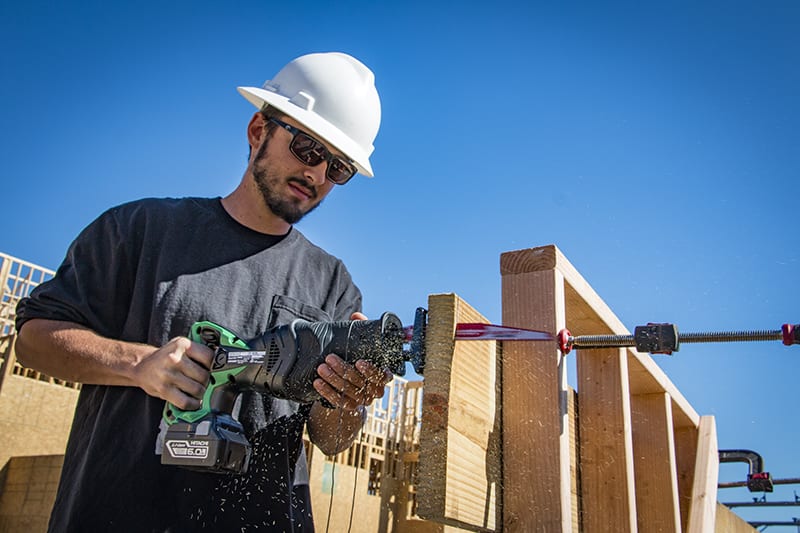

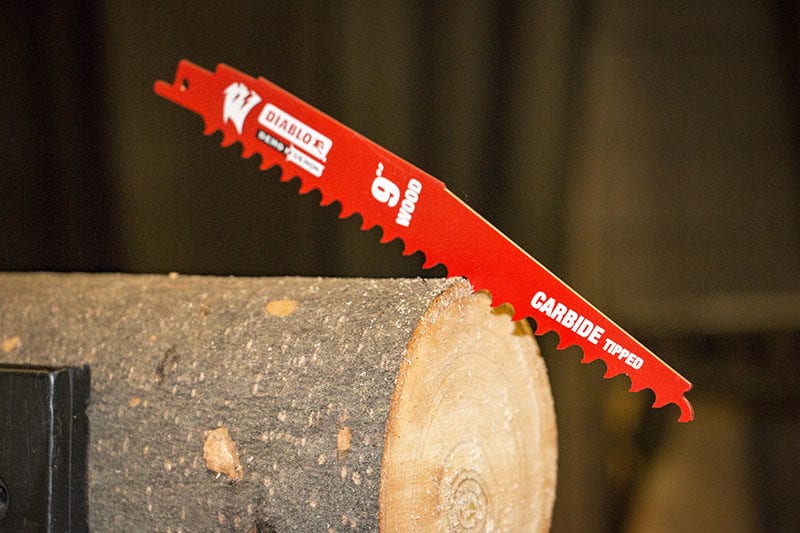
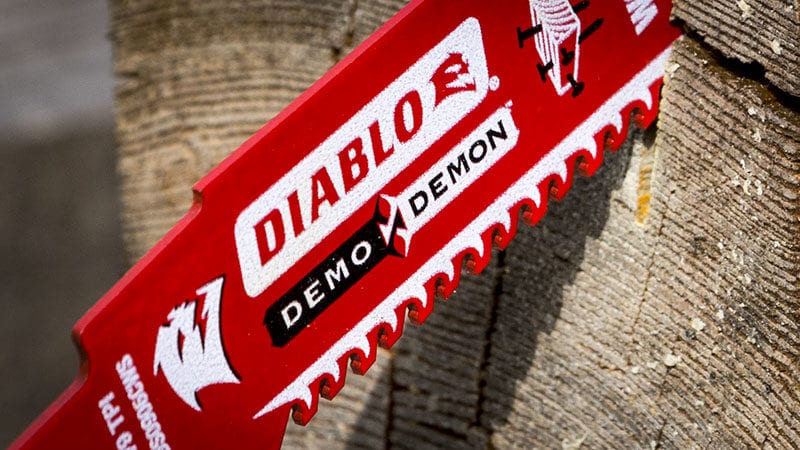
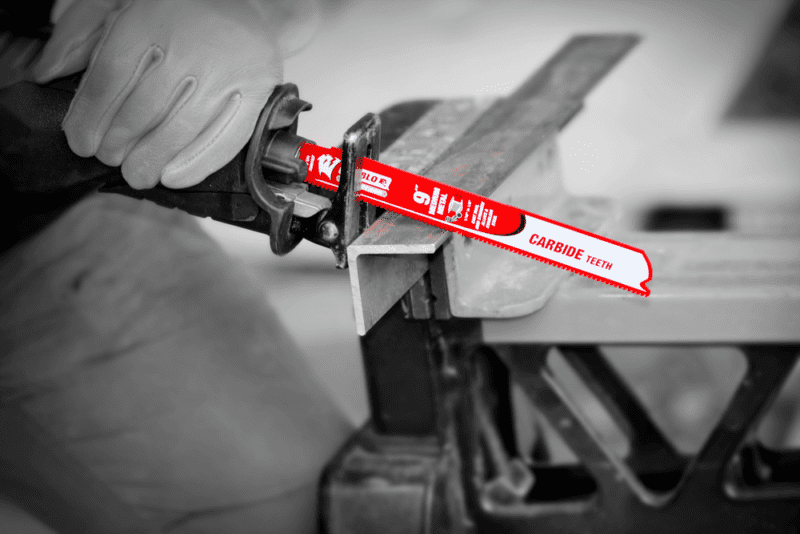
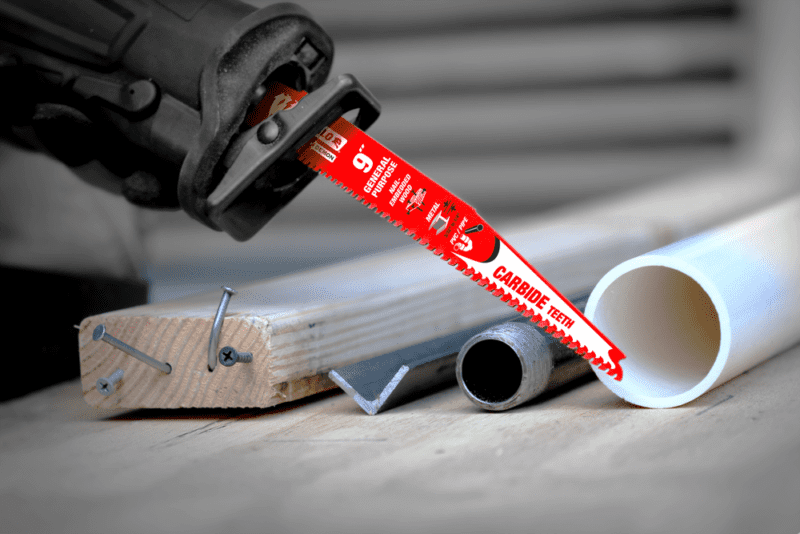
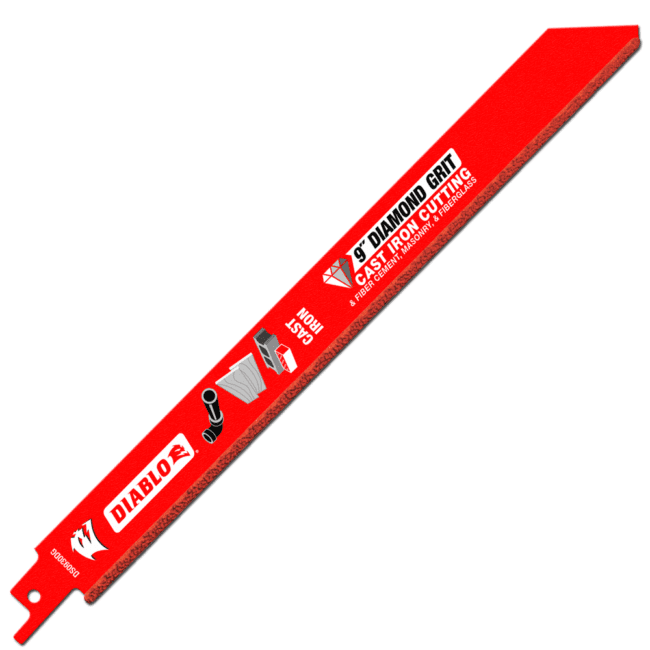



I am from the generation that was able to believe tool manufactures claims, like Craftsman lifetime guarantee, I still have the replacement 18″ 1/2″ drive ratchet that I have from 60 years ago. I have wasted thousands of dollars trying to find drill bits that would last, the same goes for all cordless tools, saw blades, sandpaper, and disks. Unlike the Timex watch we called a throw away (however my body kept my Timex watch battery charged and the watch lasted until either the band broke or I broke the watch. I just want to find reciprocating saw blades as… Read more »
Left out pruning blades. Use them all the time around the house. Way better in green wood than a “wood” blade designed for dry lumber that gets clogged and covered in sap.
Kenny, Great information here, but I’d have to agree with a lot of the other comments. The title of this piece is misleading – and should be “Everything you Need to Know About Diablo Recip Blades”. Not spelling that out initially makes it look like you’re in Freud’s pocket. You should definitely do a follow-up piece on how the different blade manufacturers stack up against each other in various applications.
I think this article does a fine job of explaining the different tooth count and material to select for the job you are doing, but falls short of comparing different manufacture blades. It looks like you took everything the Diablo salesman threw at you and ignored Lenox, Milwaukee, Bosh, and a lot of other brands out there. When buying blades, only the novice still needs advice on tooth count, we really want information on blade quality per manufacturer. You only did half the job here and left everybody in the blade isle standing there scratching their heads. Much to the… Read more »
Nice advert for Freud Diablo recip blades. Hope they pay you well w/ the schwag. Lenox, Bosch and others also have various carbide and diamond grit blades for reciprocating saws. Bosch pretty much OWNS the jigsaw blade market, so I assume they can also make a pretty decent carbide recip blade. I think it’s mostly about the brazing tech to keep the teeth attached, which is the same problem with the low speed metal cutting saw blades too. All it takes is loss of one tooth and the rest will pile up on that super hard carbide chip and break… Read more »